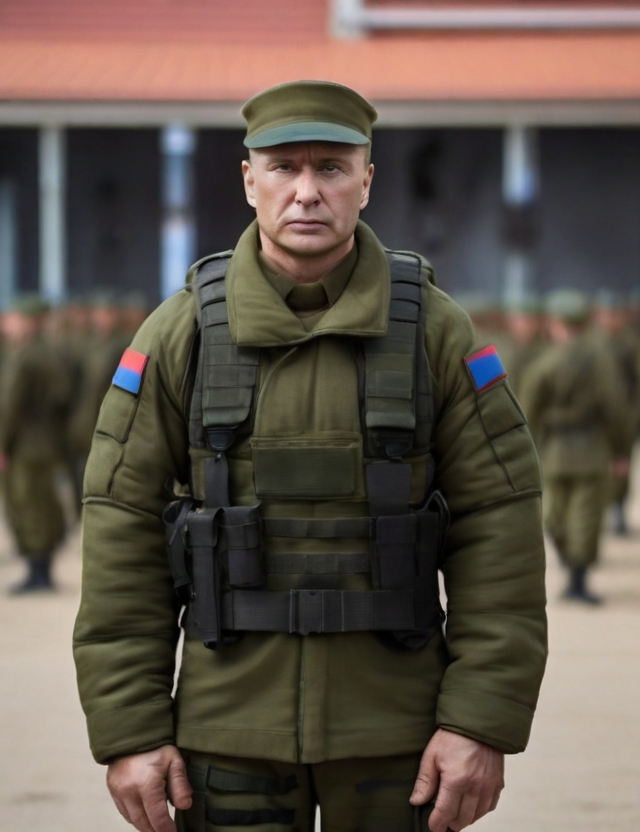Introduction
In recent times, tensions between Russia and Western nations have been steadily escalating, with Estonia now sounding alarm bells about Russia’s military preparedness. Understanding the implications of this situation is crucial for global stability and security.
Historical Context
The relationship between Russia and the West has been fraught with tension for decades, stemming from various geopolitical conflicts and ideological differences. From the Cold War era to more recent disputes over Crimea and Ukraine, the dynamics between these powers have shaped global politics significantly.
Estonia’s Claims
Estonian officials have raised concerns about Russia’s military activities, citing perceived threats to their sovereignty and regional stability. These claims are based on intelligence assessments and observations of increased Russian military presence near their borders.
Military Build-up
Evidence suggests that Russia has been bolstering its military capabilities, including troop deployments, exercises, and strategic maneuvers. The scale and scope of these activities have raised alarm bells among neighboring countries and international observers.
NATO Response
NATO has responded to these developments with a mixture of vigilance and diplomacy, emphasizing the importance of dialogue and de-escalation. While the alliance remains committed to collective defense, it also seeks to avoid unnecessary confrontation with Russia.
Potential Consequences
The prospect of military confrontation between Russia and the West carries significant risks, including the potential for widespread conflict and humanitarian crises. Escalation could have dire consequences for global security and stability.
Diplomatic Efforts
Efforts to resolve the underlying issues through diplomatic channels have been challenging, with deep-seated mistrust and geopolitical rivalries complicating the process. Finding common ground will require sustained dialogue and compromise from all parties involved.
Public Reaction
Public opinion on the situation varies widely, with some advocating for a firm stance against Russian aggression, while others emphasize the importance of diplomacy and negotiation. The issue has sparked debate and concern among citizens and policymakers alike.
Media Coverage
The issue has received extensive coverage in the international media, with journalists and analysts offering diverse perspectives on the implications of Russia’s military preparations. This coverage has helped to raise awareness and foster informed debate on the topic.
Expert Opinions
Military and geopolitical experts have weighed in on the situation, offering insights into the potential risks and consequences of a military confrontation. Their assessments highlight the need for diplomatic solutions and strategic restraint.
Economic Impact
The prospect of military conflict has also affected financial markets and investor sentiment, with heightened uncertainty contributing to volatility in global markets. The economic fallout of a confrontation could be severe, with implications for trade, investment, and economic stability.
Cyber Threats
In addition to conventional military threats, there are concerns about the risk of cyber warfare and digital sabotage. Both state and non-state actors possess the capabilities to disrupt critical infrastructure and communications networks, adding another layer of complexity to the situation.
Humanitarian Concerns
The potential humanitarian impact of a military confrontation cannot be overlooked, with millions of civilians at risk of displacement, injury, or worse. Efforts to protect civilian populations and mitigate the effects of conflict must be prioritized by all parties involved.
International Response
Beyond NATO, the international community has expressed concern about the situation, with calls for dialogue and restraint from various quarters. Non-NATO countries have also urged peaceful resolution and diplomatic engagement to prevent further escalation.
Conclusion
In conclusion, Russia’s preparations for military confrontation with the West, as highlighted by Estonia, underscore the urgent need for diplomacy and dialogue. Escalation carries significant risks for global security and stability, making it imperative for all parties to work towards peaceful resolution.
FAQs
- Is war between Russia and the West inevitable?
While tensions are high, it is not inevitable. Diplomatic efforts and dialogue can still prevent escalation.
- What role does NATO play in this situation?
NATO serves as a deterrent against aggression while also advocating for diplomatic solutions to the underlying issues.
- How are other countries responding to Russia’s military build-up?
Other countries are closely monitoring the situation and calling for restraint and dialogue.
- What are the economic implications of a military confrontation?
A military confrontation could disrupt global markets and investor confidence, leading to economic instability.
- What can ordinary citizens do to contribute to peace efforts?
Ordinary citizens can advocate for diplomacy and dialogue, as well as staying informed about the situation and supporting humanitarian efforts.



